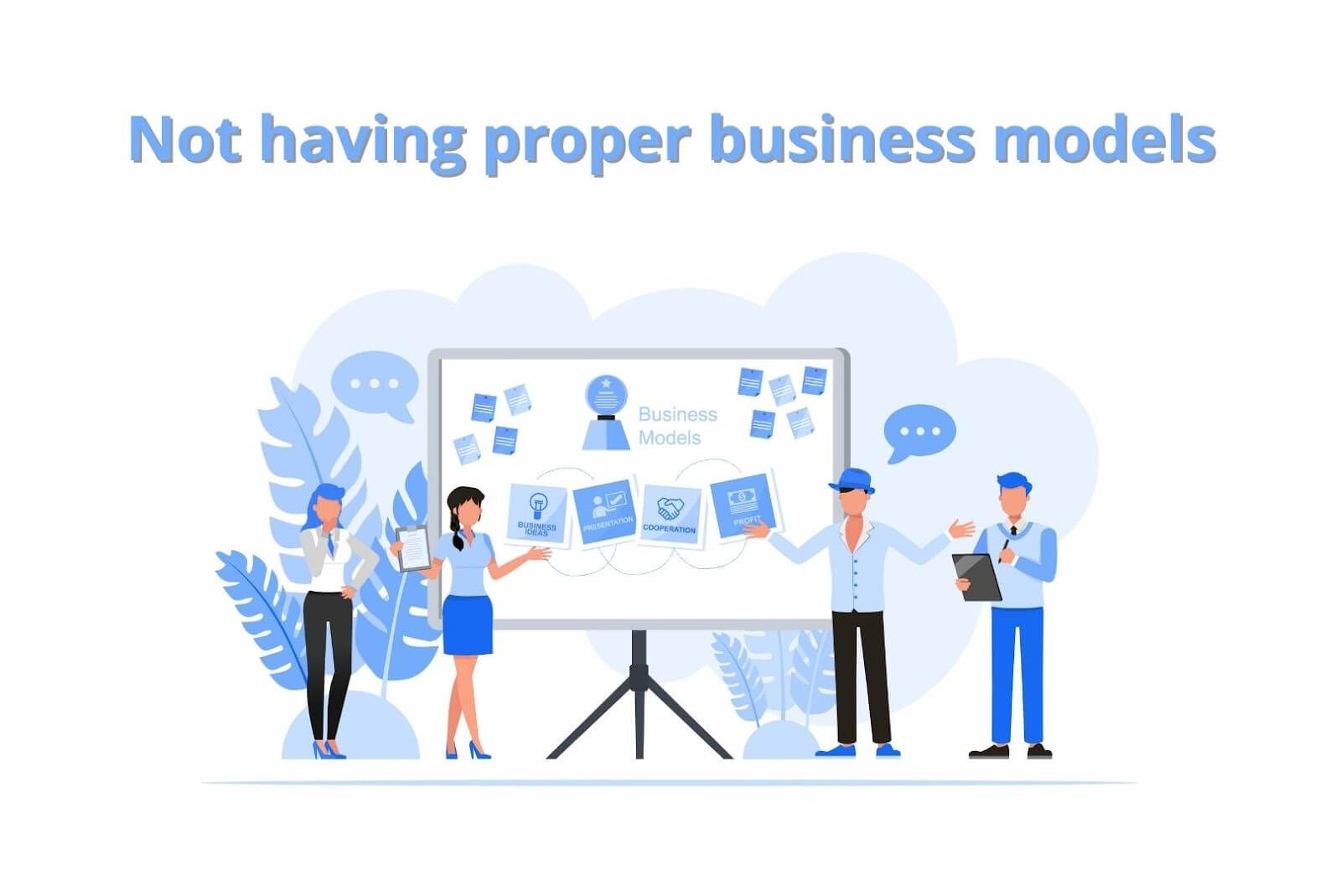
Digital transformation involves integrating digital technology into various aspects of a business, fundamentally changing how it operates and delivers value to customers. The basic idea of digital transformation needs to be fixed in the minds of most new-age entrepreneurs. They think digital transformation means the wayward deployment of the upcoming technologies, but the reality is far different. Digital transformation is a comprehensive business process that maximizes profits by including apt technologies.
Table of Contents
As we dig deep, we find it is more complex than we think. McKinsey and Company's survey shows less than 33% of digital transformation attempts yield praiseworthy results and nearly 70% fail in digital transformation. Companies of all shapes and sizes are rapidly trying to jump on this bandwagon but must realize the digital transformation challenges.
Digital transformation will bring a paradigm shift in companies' daily activities and challenges. But before jumping the queue, we will understand digital transformation's definition and impact on businesses worldwide.
Let's explore some of the main challenges organizations face in digital transformation.
8 Digital Transformation Challenges and Their Solutions
The importance of digital transformation in the modern business landscape is undeniable. Digital transformation significantly helps businesses to ace the competitive space, improve efficiency, enhance customer experience, and foster innovation.
Irrespective of the various benefits, companies fail in digital transformation due to several associated challenges.
1. Resistance to Change

A company of a team is nothing but a group of dedicated people working towards its growth. Any revolution or change in the company culture or workflow can only be implemented if its people abide by it. Initial implementation of digital transformation comes with many complexities; hence, many stakeholders and employees need help dealing with the associated complexity. From senior-level managers to junior employees possess some form of resistance to adopting new technology and processes. They are comfortable following the traditional tried and tested methods and see no point in shifting to new roles and responsibilities.
There are many reasons behind resistance to change, including fear of job loss, comfort with existing processes, and skepticism about new technologies.
Solution:
Organizations must create strategies to overcome resistance and promote a positive mindset among the employees. Provide actionable strategies for organizations to address resistance, such as transparent communication, employee involvement, and change management techniques. Engaging employees actively in the transformation process can lead to a sense of ownership, increased morale, and a smoother transition.
2. Integration Issues with Legacy Systems
Organizations with legacy systems find it difficult to replace their traditional approach with newer technologies and learn new skills. Integrating new digital technologies with legacy systems while maintaining compatibility issues, data transfer challenges, and operations disruption is complicated.
Solution:
Arrange sessions to help employees understand the importance of integrating new technologies with existing infrastructure. Highlight the significance of seamless integration to ensure continuity of operations, data accuracy, and a streamlined workflow. Provide practical solutions, best practices, and tools organizations can leverage to facilitate smooth integration processes, minimizing downtime and maximizing efficiency.
3. Data Security and Privacy Concerns

One of the significant digital transformation challenges is having top-level security. There are many cases worldwide where big companies have fallen prey to cyber-attacks and failed miserably. Moreover, according to Gartner, companies know 99% of the security issues for at least a year before acting on them.
Moreover, the fast evolution of the new-age technologies makes life more challenging for businesses, and they cannot keep pace with it. Improper security leads to unsuccessful digital transformation, which brings uncertainty and instability.
Solution
To overcome this challenge, businesses must opt for cloud migration. Cloud computing will enhance security levels and make digital transformation more accessible for businesses. Cloud will be necessary if the software systems reside in a unifying digital adoption platform.
Moreover, with cloud computing, businesses can accelerate the implementation of digital transformation initiatives. After the disastrous pandemic in 2020, many companies have opted for cloud migration to keep their data safe.
Opting for cloud computing helps you prioritize your security and make your business trustworthy. Moreover, in today’s uncertain times, a safe company becomes inevitable to win and keep the trust of your customers.
4. Lack of Digital Transformation Strategy & Leadership
Many businesses need more clarity of thought to implement digital transformation. A CIO report stated that CEOs have a vague scope in most digital transformation failures. Moreover, a Harvard University review said top brands like P&G, Ford, etc., asked top people to step down as they could not embrace the change.
Top C-level executives fail to embrace digital transformation because it requires many initiatives. Moreover, some cannot convey a solid digital transformation definition to their employees. Because of this, their employees are not on the same page, impacting their efficiency and performance.
Another massive barrier in digital transformation is that leaders do not need help understanding the clear picture themselves. Because they are unaware of this evolutionary change, they will refrain from putting a definite step forward and welcome it.
Solution
The leaders of the companies should have a clear blueprint of the strategic plan needed for digital transformation. Moreover, they should clearly understand this change's impact on their companies.
Since the CEOs are aware of digital transformation metrics, they will be able to convey clearly to their employees. As the communication process is seamless, the employees will happily react positively to the changes that impact their efficiency.
5. Stress for Delivering Exceptional Customer Experience

If we say that we live in an ‘experience economy,’ it will not be an overstatement. Modern-day consumers rate their shopping experience much more than anything else. It means the company will lose customers if it fails to provide the best customer experience. The ever-evolving customer needs pressure companies to keep delivering exceptional customer experiences.
Apart from customer retention, better customer experience (CX) will help in making a different brand image for your company. Moreover, brands reluctant to change according to the digital transformation will need help retaining their customers.
Companies should understand that bad CX is the leading silent killer. Because the customers who leave your platform due to bad experiences seldom return.
Solution
The catch here is to re-do your customer experience process from the bottom. Focus on your targeted audience's journey to clearly understand their buying patterns. In addition, going through your customers' journey will help you touch various other touchpoints. By embracing digital transformation, you will stand a better chance of user retention.
The other important thing is to get a stronghold on the ‘art of customer experience.’ The catch here lies in revamping your current brand presence. Because of this, your product will become easily accessible to customers through digital transformation.
Digital transformation will help your business to develop more customer-centric products and keep you ahead of the competitors. And once you reach this pedestal, you will have aced the digital transformation challenges.
6. Lack of Adequate Business Model

There are instances where businesses want to embrace the change digital transformation brings but must be better equipped for it. Moreover, sometimes companies are so rigid in their legacy that they don’t want to change. And here is where their legacy becomes a burden for them instead of an asset.
For example, we did witness what happened to the leading mobile company Nokia when they refused to transform digitally. Another example is related to Kodak. In the 20th century, Kodak invented the digital camera before it was even known to the public. But instead of taking an early bird advantage, they decided to bury the invention as it threatened their legacy.
Another example is Bell Atlantic, but it is slightly different. The company saw that the landline phones were dying and had no future. So, instead of sitting on the fence, the company took charge and seamlessly transitioned to mobile phones. We all are aware of Verizon.
Solution
Leaving your legacy and embracing a new system requires a pinpoint thought process. Moreover, to ride the hand-wagon of digital transformation, you have to be right about your timing.
There is yet to be a set template for this digital transformation challenge. It requires adequately designed innovative steps and a will to take risks. In addition, the leader of companies should think beyond their quarterly benefits to get out of their legacy and include digital transformation.
7. Talent Shortage and Skills Gap
The higher-level employees must know the digital skills required for the company's digital transformation. In today's job market, there is a huge demand for professionals with high digital skills, including data analysis, artificial intelligence, cybersecurity, and software development. Companies find it challenging to find and retain skilled professionals and face multiple challenges in recruiting and retaining digital talent, including competition, evolving skill requirements, and industry demand.
Solution:
The best solution to get skilled employees is bridging the skill gap by training the existing employees with training programs, encouraging them to attend relevant webinars, providing courses for skill enhancement, and more. Organizations can adopt showcase training programs, educational initiatives, and skill development strategies to bridge the skills gap, empowering their workforce with the necessary digital competencies.
8. Budget Constraint
Digital transformation is a huge investment that may affect companies' budget criteria. According to Statista, the organizational spending on digital transformation from 2017 to 2024 is expected to rise from 0.6 to 2.39 Trillion US Dollars. Companies must have considerable finances to invest in digital transformation or have strategic budget planning. Digital transformation cannot have a finite or fixed budget for evolving customer requirements. Many things include infrastructure, technological training, and resource investment to implement an effective digital transformation.
Solution:
Preparing a strategic budget plan considering the long-term goal of the digital transformation may help. Long-term budget planning will mitigate the risk of the financial risks. A meticulous planning and thorough understanding of the digital solution will help set up a budget that minimally deviates from the defined budget.
How Third Rock Techkno helps businesses with digital transformation.
Businesses should understand that the digital will continue evolving even if they are unwilling to change. So, it is better to include digital transformation in your business to render top-notch customer experience to your targeted audience. Significantly acknowledging and proactively addressing these challenges ensure the success and sustainability of digital transformation efforts.
With our exceptional software development services, Third Rock Techkno helps organizations adapt to digital transformation and work towards adopting an omnichannel approach. Digital transformation allows companies to simplify their operations and connect with customers in many ways. We focus on developing easy-to-use and simple digital solutions that assist with 24/7 connectivity that will play a massive role in helping your business deliver more personalized customer services.

We are a team of expert developers, testers and business consultants who strive to deliver nothing but the best. Planning to build a completely secure and efficient application? 'Hire Dedicated Developers'.
Build Your Dream Project With The Best in Class Team
Achieve the digital maturity of your business by on-boarding the expert team of Third Rock Techkno.
Let's begin with a free discovery session

